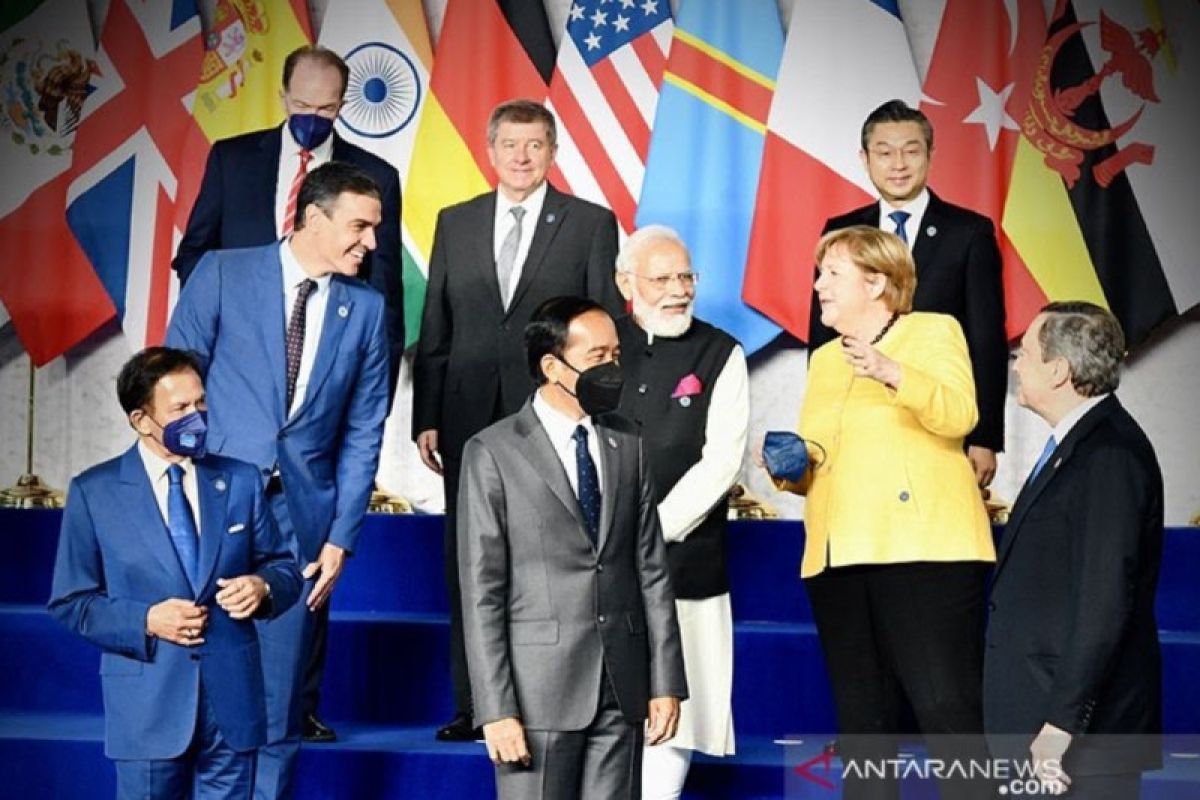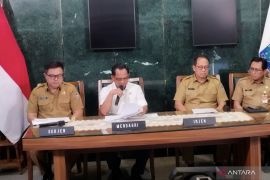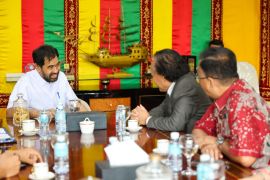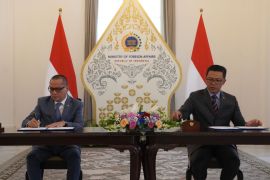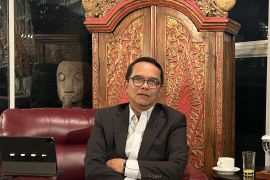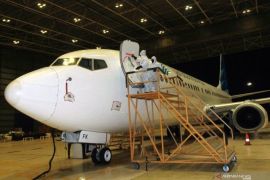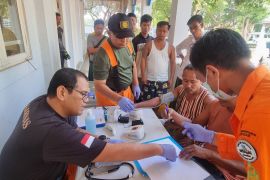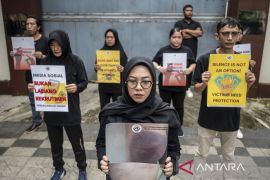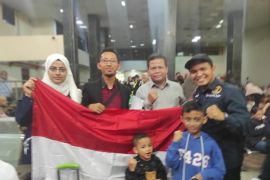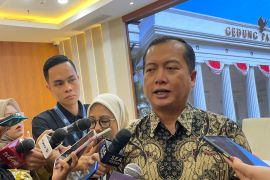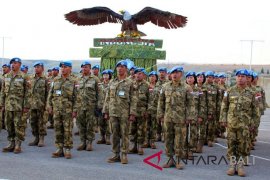According to Merriam-Webster: “Connectivity refers to the quality, state, or capability of being connective or connected.”
However, recent events in global affairs have underlined the necessity of redefining connectivity. In view of recent conflicts of interest, and even war, this view of connectivity perhaps seems faded.
With the sort of adversity hindering current global recovery, lack of connectivity would simply hamper the achievement of global goals. Indonesia, on its part, has taken the role of a bridge-builder in global affairs.
President Joko ‘Jokowi’ Widodo stated in his 75th United Nations General Assembly address that, “Indonesia will continue to play a role as a bridge-builder, as part of a solution.”
Since the COVID-19 pandemic, being a bridge-builder has been an explicit strategic role for Indonesia. With the cognitive consistency of President Jokowi in projecting this role of Indonesia, this has developed as a serious goal.
In view of President Jokowi’s visit to Ukraine and Russia, Indonesia took a step toward becoming a third party to connect both parties with hopes of achieving peace.
The energy crisis—which had a global impact—induced by the war motivated Indonesia to cater to global interest by striving for peace.
Undertaking this role amidst the Russo-Ukrainian war is Indonesia’s constitutional responsibility, but also its foreign policy, which stresses its free and active role.
However, it will certainly be a challenge for Indonesia to project this strategic role, given its limitations as a developing country. Generally, Indonesia is still considered a growing economy, making it substantially vulnerable to unprecedented impacts on the economic chain.
Moreover, Indonesia has significantly limited military capability and influence in comparison to other great powers.
But there is an interesting statistic.
In the Lowy Institute Asia Power Index 2021 Edition, Indonesia moved up two ranks to place 9th out of 26 countries. Certainly, this is an astonishing achievement for Indonesia in terms of power.
By breaking down this record, it is projected that Indonesia’s diplomacy has catapulted it to this power ranking, meriting it 1.7 points.
Hence, reflecting upon this statistic, to further advance Indonesian diplomatic initiatives is central to guiding Indonesia’s position as the hub of centrality.
The diplomatic momentum of Indonesia has projected positive marks in terms of the nation’s role within multilateral frameworks, primarily the 2022 G20 Presidency and 2023 ASEAN chairmanship.
Within this span of time, it is certainly an important opportunity for Indonesia to grasp. Indonesia certainly has had its fair share of international recognition, however, these opportunities could merit Indonesia as an actor that guides and connects the world amid high degrees of adversities.
The G20 Presidency of Indonesia has been familiarized and advertised through the motto of “Recover Together, Recover Stronger.”
Though sometimes the G20 is often perceived as a formality or an annual lottery club, the seriousness of Indonesia’s Presidency remains an imperative matter.
The determination of Indonesia within the G20 reflects how far Indonesia wants to go to connect the missing dots of international stability.
Perhaps a question that arises regarding this matter is, “What other methods is Indonesia willing to take to connect nations? What sort of environment is Indonesia trying to establish? Conforming? Conventional? Rigid?”
Following the G20 Foreign Ministers’ Meeting, comfort has emerged as a keyword that could set the tone in this regard.
In response to Russia’s walkout and other early exits, Indonesian Foreign Minister Retno L. P. Marsudi said, “We all must feel comfortable. We have had consultation and communication among all member countries since the beginning and we had told them we wanted to create a comfortable atmosphere for all. Indonesia as a host country pays respect to each country’s position.”
In reference to the statement, comfort enables trust. Indonesia needs to be perceived as a hub where countries are willing to share their dialogues.
Subsequently, the accumulated trust through comfort would position Indonesia as an actor with credible leadership.
Regionally, ASEAN has become an imperative for Indonesia. As stated in the 2022 Annual Press Statement of the Foreign Minister of Indonesia, “In the midst of these challenges, we witness deepening rivalries between great powers. Such rivalries are also apparent in the Indo-Pacific region. Creating yet another challenge for ASEAN. It is important for ASEAN to continue strengthening its unity and centrality. ASEAN solidity must be reinforced. ASEAN must continue its endeavor to build an ASEAN community and maintain a secure, stable, and prosperous Indo-Pacific region.”
Through ASEAN, Indonesia caters to regional interests, and primarily the interests of developing nations that are directly impacted by global crises.
The regional integrity of ASEAN is essential to address the volatile rivalry within the region as a means to bring stability. The influence of ASEAN is significantly impactful if the consensus is advanced optimally.
Nonetheless, there are still an array of opportunities for Indonesia to play a diplomatic role to further synergize ASEAN along with the other member states.
It is imperative to redefine the strategic position of ASEAN. Looking at the current geopolitical trends in the Indo-Pacific, it is important to essentialize ASEAN as a region with global responsibility.
According to the ASEAN Key Figures 2021, ASEAN has an aggregate economy size of approximately US$3 trillion and a population of around 660 million. The geographical significance of ASEAN provides it an opportunity to play an essential role globally, and primarily in the Indo-Pacific strategy.
As a nation with genuine regional leadership in ASEAN, Indonesia must further excel in its diplomacy, bilaterally and regionally, to support the act of essentializing ASEAN.
Comprehension must be key to essentializing ASEAN, thus, establishing comprehensive common goals is essential ahead of Indonesia’s 2023 ASEAN chairmanship.
To conclude the article, the writer expresses his hopes for the benevolence of Indonesia’s diplomacy in contributing to global recovery. Hence, the writer also dedicates this piece of writing to the 77th anniversary of the Ministry of Foreign Affairs of the Republic of Indonesia on August 19, 2022.
Related news: Strengthening Indonesia-Japan ties through traditional woven fabrics
Related news: G20: Indonesia strives for health diplomacy in pandemic preparedness
*) The writer is the Minister Counsellor / Consul of Economy of the Consulate General of Indonesia in Shanghai.
The views and opinions expressed on this page are those of the author and do not necessarily reflect the official policy or position of the ANTARA News Agency.
Copyright © ANTARA 2022
